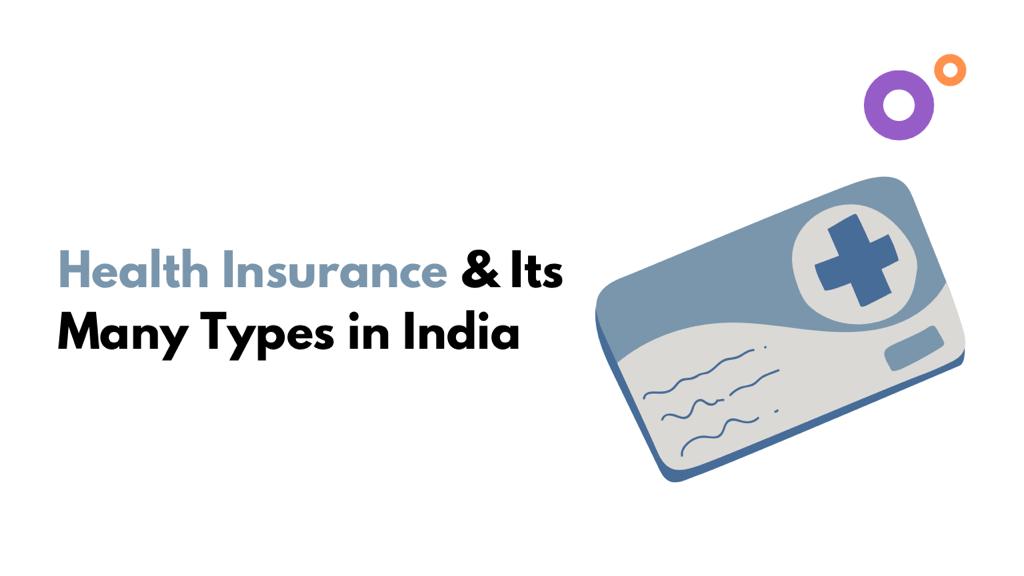
Health Insurance & Its Many Types in India
Introduction
There are a variety of health insurance plans offered in India. These plans can be broadly classified into indemnity and fixed benefit plans. Indemnity plans provide insurance benefits up to a predetermined limit. The insurance provider can reimburse you or enable you to avail of cashless treatment. A fixed benefits plan provides a definite amount of money when a claim is made as a result of specific health issues.
Popular Types of Insurance Policies
In India, different types of health insurance policies are available and you should decide carefully based on your needs. The right insurance policy will provide the most financial support you need.
● Individual Health Insurance
Individual health insurance is the most straightforward insurance plan suitable for a single person. The insured person will be compensated for medical expenses for illnesses covered by the plan.
Coverage includes hospitalisation expenses, surgical costs and other medical expenditures up to the insured limit. Premium is usually calculated based on the age and medical history of the insurer. At an added cost, an individual can also extend coverage for spouse, children and parents under the same plan.
● Family Floater Health Insurance
Family health insurance is a single insurance plan for everyone in the family. The insurer has to pay the premium while everyone in the family, including children and elders, will be covered for medical expenses.
Even if more than one person is affected by the illness, you can claim insurance for all until the limit is reached. As the age of insured people influences premium calculations, the cost of adding members over 60 years of age is higher but as they are more prone to illness and other medical problems, it is advisable to have them covered.
● Group Health Insurance
Companies usually purchase group health insurance to provide insurance for their employees. As an insured member under group health insurance, you may be eligible to include your family members under the same plan. Basic coverage is usually free for employees in the group.
Some perks include maternity coverage, outpatient treatments, annual health check-ups, diagnostic tests coverage, etc.
● Senior Citizen Health Insurance
Senior citizen health insurance is available for seniors older than 65. The premium for senior citizen health insurance is usually higher because of the increased medical risks.
Coverage usually includes both pre and post-hospitalisation expenditure. Some policies also cover domiciliary expenses and psychiatric treatments.
● Maternity Health Insurance
Maternity health insurance is usually purchased as an add-on and a basic insurance policy. This type of insurance covers prenatal, delivery and postnatal expenses. It is best to purchase this plan when you start planning for a family.
There is usually a waiting period before you can make a claim. Furthermore, some insurance providers also cover new-born expenses shortly after delivery.
● Critical Illness Insurance
Critical illness insurance is a lifesaver for those diagnosed with critical illnesses such as cardiac problems, kidney failure, stroke, cancer, paralysis, etc. The insurance provider pays a lump-sum amount as a one-time payment at the time of claim. The policy is terminated after the lump-sum payment. There is also a renewability feature with this policy.
● Top-Up Health Insurance
Top-up health insurance is usually purchased for additional coverage apart from the health insurance plan. The top-up plan activates automatically when you have exhausted the maximum claim amount for your base insurance plan.
● Hospital Daily Cash
The hospital daily cash plan covers hospitalisation expenses when the insured person gets hospitalised. However, hospitalisation charges vary widely depending on the treatment. Usually, individuals can get a cash benefit set by the coverage amount.
● Disease-Specific Health Insurance
After the widespread global pandemic, insurance providers now offer disease-specific health insurance plans for those affected with diseases like COVID-19. Such an insurance policy covers specific diseases and provides coverage based on the conditions.
● Personal Accident Insurance
A personal accident insurance plan explicitly covers expenses for treating injuries caused by a personal accident. The injured person may become disabled or die, and the insurance offers some solace to the family. The victim's family gets a lump-sum payment when the claim is made.
How to Choose a Health Insurance Plan?
With numerous options available, you must compare multiple insurance plans and choose one that best suits your requirements. Some of the factors to consider are:
Conclusion
Health insurance policies empower you to get the proper treatment for different types of critical illnesses without spending much money out of your pocket.
When you or your loved ones suffer from a life-threatening disease, the increasing cost of healthcare facilities should not stop you from getting the treatment. So, choosing the right plan is crucial to maximising benefits.
Why talk to Us?
We at FirstCure have top doctors equipped with most advanced procedures at guranteed lowest cost. We will assist you at every step from booking consultations, second opinions, arranging diagnostic tests, insurance approvals and related paperwork, admission to discharge and post surgery follow up consultation.